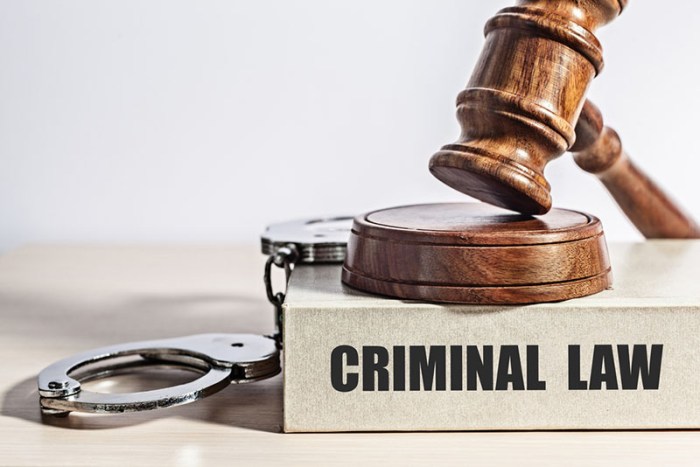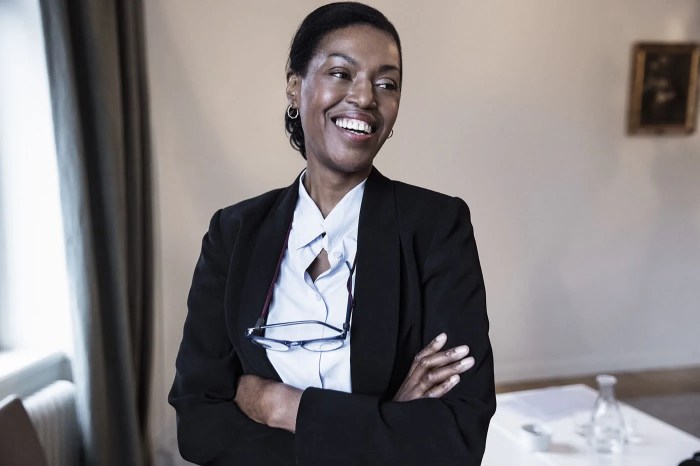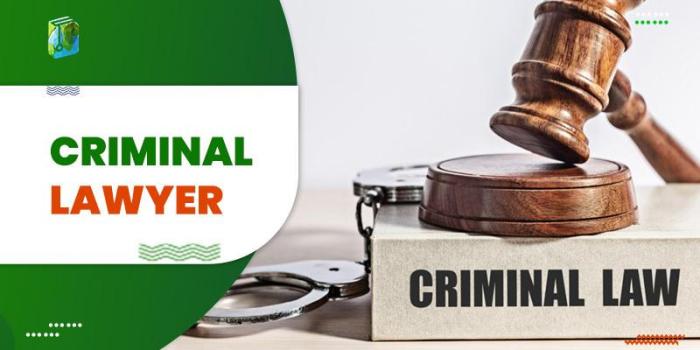
How to become a criminal lawyer? It’s a question that sparks curiosity and a desire to make a difference. The path to becoming a criminal lawyer is demanding, requiring a blend of education, skill, and dedication. It’s a journey that involves navigating complex legal systems, advocating for clients, and striving for justice in a field where every case carries weight.
This guide delves into the essential steps, skills, and challenges involved in becoming a criminal lawyer. We’ll explore the educational requirements, crucial skills, diverse career paths, and the rewards of a profession dedicated to upholding the law and representing those accused of crimes.
Career Paths: How To Become A Criminal Lawyer

A career as a criminal lawyer offers diverse paths, each with unique responsibilities and challenges. Understanding these options can help you choose the best path for your interests and goals.
Public Defenders
Public defenders represent clients who cannot afford legal representation. They are appointed by the court to ensure everyone has access to legal counsel.
- Responsibilities: Public defenders handle a wide range of criminal cases, from misdemeanors to felonies, including drug offenses, theft, assault, and even murder. They investigate cases, interview witnesses, negotiate plea bargains, and represent clients in court.
- Challenges: Public defenders often face a high caseload, limited resources, and challenging clients. They must work within tight deadlines and advocate for their clients despite limited budgets and potential public scrutiny.
- Work Environment: Public defenders typically work for government agencies, often in bustling and demanding environments. They collaborate with other legal professionals, social workers, and community organizations.
- Salary: Salaries for public defenders vary depending on location and experience. They generally earn less than private defense attorneys but find satisfaction in providing legal aid to those in need.
Prosecutors
Prosecutors represent the government in criminal cases, working to uphold the law and ensure justice for victims.
- Responsibilities: Prosecutors investigate crimes, gather evidence, interview witnesses, and present cases in court. They determine charges, negotiate plea bargains, and seek convictions. They are responsible for upholding ethical standards and ensuring fairness in the legal system.
- Challenges: Prosecutors face high pressure to secure convictions, often working with limited resources and dealing with complex cases. They must make difficult decisions regarding charges and plea bargains, balancing the need for justice with the rights of the accused.
- Work Environment: Prosecutors typically work for government agencies, often in large offices with a hierarchical structure. They collaborate with law enforcement officers, investigators, and other legal professionals.
- Salary: Salaries for prosecutors vary based on experience and location. They generally earn competitive salaries, comparable to those in private practice.
Private Defense Attorneys
Private defense attorneys represent clients who can afford legal representation. They provide legal counsel and advocacy in a variety of criminal cases.
- Responsibilities: Private defense attorneys investigate cases, interview witnesses, negotiate plea bargains, and represent clients in court. They may specialize in specific areas of criminal law, such as drug offenses, white-collar crimes, or violent crimes.
- Challenges: Private defense attorneys must balance the needs of their clients with the demands of the legal system. They may face ethical dilemmas, pressure from clients, and high stakes in complex cases.
- Work Environment: Private defense attorneys typically work in private firms, often with varying degrees of autonomy and control over their caseload. They may work independently or as part of a team.
- Salary: Salaries for private defense attorneys vary widely based on experience, location, and the type of practice. They generally earn higher salaries than public defenders, but their income can fluctuate depending on case volume and success.
Key Responsibilities
Criminal lawyers play a crucial role in the justice system, advocating for the rights of their clients accused of crimes. They are responsible for navigating complex legal procedures and ensuring their clients receive a fair trial.
Representing Clients in Criminal Cases, How to become a criminal lawyer
Criminal lawyers represent clients facing various charges, from minor offenses to serious felonies. They act as the client’s voice throughout the legal process, guiding them through each stage, from initial arrest to potential sentencing.
Plea Negotiations
Plea negotiations are a critical part of many criminal cases. Criminal lawyers engage in these negotiations with prosecutors to try and reach an agreement that benefits their client. This may involve reducing charges, lowering potential sentences, or dismissing certain charges altogether.
Trials
If a plea agreement is not reached, the case will proceed to trial. Criminal lawyers prepare meticulously for trial, gathering evidence, interviewing witnesses, and strategizing with their clients. During the trial, they present evidence, cross-examine witnesses, and argue their case before the judge or jury.
Appeals
After a verdict is reached, criminal lawyers may file an appeal if they believe there were errors in the trial proceedings or that the sentence was unfair. Appeals are complex legal processes that require a deep understanding of legal precedents and procedures.
Client Confidentiality and Ethical Obligations
Criminal lawyers have a strict ethical obligation to maintain client confidentiality. This means they cannot disclose any information shared by their clients, even to law enforcement or other parties. They must also act with integrity and professionalism, upholding the highest standards of legal ethics.
Challenges and Rewards

A career as a criminal lawyer is demanding and rewarding, requiring a unique blend of legal expertise, advocacy skills, and emotional resilience. While the path is challenging, the rewards of representing clients and fighting for justice are profound.
The Emotional Toll of Sensitive Cases
Criminal lawyers often face the emotional toll of dealing with sensitive cases involving serious crimes, trauma, and human suffering. They are entrusted with representing clients accused of heinous acts, navigating complex legal systems, and advocating for their rights. This can lead to emotional exhaustion, compassion fatigue, and the need for strong coping mechanisms.
“Criminal lawyers must be able to compartmentalize their emotions and maintain a professional distance while still providing compassionate and effective legal representation.”
The Complexities of the Criminal Justice System
The criminal justice system is a complex and intricate web of laws, procedures, and precedents. Criminal lawyers must navigate this system with expertise, understanding the nuances of criminal law, evidence rules, and trial procedures. They must also be adept at strategic planning, negotiation, and advocacy, all while ensuring their clients’ rights are protected.
“Criminal lawyers must be able to navigate the complex and often adversarial legal system, advocating for their clients’ rights and ensuring a fair trial.”
The Rewards of Representing Clients and Advocating for Justice
Despite the challenges, criminal lawyers find deep satisfaction in representing their clients and fighting for justice. They have the opportunity to make a real difference in people’s lives, advocating for their rights and ensuring a fair trial. They also play a crucial role in upholding the principles of justice and due process, contributing to a fair and equitable legal system.
“The reward of representing clients and advocating for justice is deeply fulfilling, knowing that you are making a real difference in people’s lives.”
Professional Organizations
Joining professional organizations is a valuable step for aspiring and established criminal lawyers. These organizations offer a platform for networking, professional development, and staying abreast of legal developments and ethical standards.
Benefits of Membership
Membership in professional organizations provides several advantages for criminal lawyers.
- Networking Opportunities: These organizations offer opportunities to connect with other lawyers, judges, and legal professionals. This can be invaluable for building relationships, finding mentors, and learning about new legal developments.
- Continuing Education: Professional organizations often host conferences, seminars, and webinars that provide continuing legal education (CLE) credits. This helps lawyers stay up-to-date on the latest legal developments and trends.
- Access to Resources: Members often have access to valuable resources, such as legal research databases, practice management tools, and ethical guidelines. These resources can help lawyers improve their practice and stay compliant with legal requirements.
- Advocacy and Lobbying: Some professional organizations engage in advocacy and lobbying efforts to protect the interests of lawyers and the legal profession. This can include advocating for legislation that supports the legal profession or opposing legislation that could harm the profession.
- Professional Development: Many organizations offer professional development programs, such as mentoring programs, leadership training, and skills workshops. These programs can help lawyers enhance their legal skills, improve their practice management, and advance their careers.
Role in Supporting Ethical Practices and Continuing Education
Professional associations play a critical role in upholding ethical standards and promoting continuing education within the legal profession.
- Ethical Guidelines: Many organizations develop and enforce ethical codes of conduct for their members. These codes Artikel the ethical principles and standards that lawyers must adhere to in their practice. The American Bar Association (ABA) Model Rules of Professional Conduct serve as a foundation for many state bar ethical rules.
- Disciplinary Proceedings: Organizations may also have disciplinary procedures to address ethical violations by their members. These procedures can involve investigations, hearings, and sanctions for lawyers who violate ethical rules.
- Continuing Legal Education (CLE): Professional organizations often require their members to complete a certain number of CLE credits each year. This ensures that lawyers stay up-to-date on legal developments and maintain their competency.
Key Professional Organizations
The following table highlights some key professional organizations for criminal lawyers:
| Organization | Specific Offerings |
|---|---|
| American Bar Association (ABA) | – Criminal Justice Section – National Lawyers Guild (NLG) – National Association of Criminal Defense Lawyers (NACDL) – American Academy of Forensic Sciences (AAFS) – American Society of Criminology (ASC) |
| National Association of Criminal Defense Lawyers (NACDL) | – Advocacy for criminal defendants – Continuing education and training – Networking opportunities – Resources and publications |
| American Bar Association (ABA) Criminal Justice Section | – Advocacy for criminal justice reform – Continuing education and training – Networking opportunities – Resources and publications |
| National Lawyers Guild (NLG) | – Advocacy for social justice and human rights – Continuing education and training – Networking opportunities – Resources and publications |
Outcome Summary

Becoming a criminal lawyer is a rewarding yet demanding path. It’s a journey that requires commitment, intellectual curiosity, and a passion for justice. By understanding the educational requirements, cultivating the necessary skills, and embracing the challenges that come with the role, aspiring criminal lawyers can pave the way for a fulfilling and impactful career in the legal field. The journey may be complex, but the impact of advocating for justice and ensuring fair legal representation is truly meaningful.
Question Bank
What are the typical salary ranges for criminal lawyers?
Salaries for criminal lawyers vary based on experience, location, and type of practice. Public defenders generally have lower salaries compared to private attorneys. Entry-level positions often start around $50,000 to $70,000 per year, while experienced lawyers can earn significantly more.
How long does it take to become a criminal lawyer?
It typically takes around 7-8 years to become a criminal lawyer. This includes four years of undergraduate education, three years of law school, and passing the bar exam.
What are some of the most common areas of specialization within criminal law?
Common areas of specialization include white-collar crime, drug offenses, violent crimes, and juvenile delinquency. Lawyers may also focus on specific types of criminal defense, such as DUI defense or domestic violence cases.




